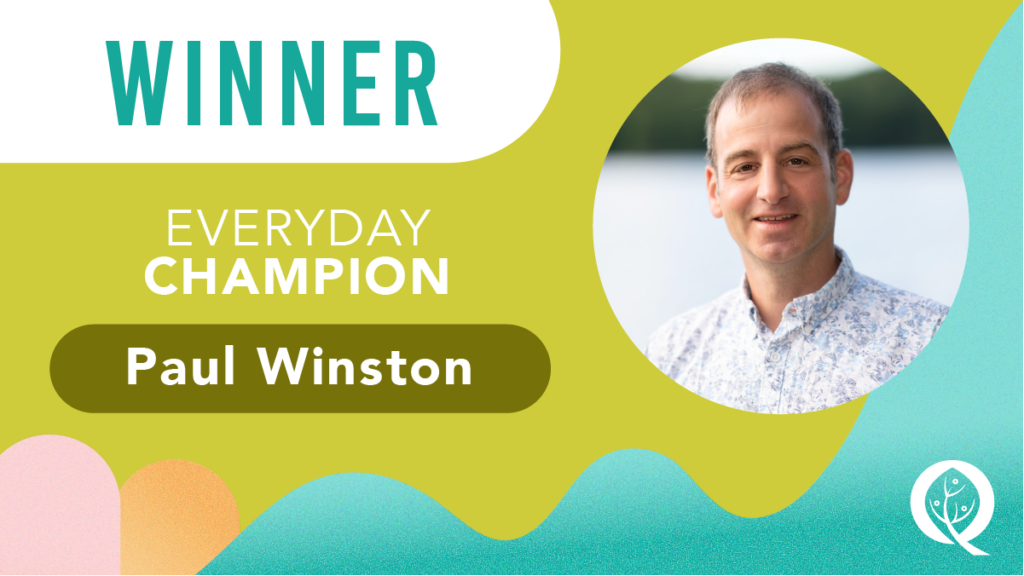- 2021
|
- Winner
|
- Everyday Champion
Spasticity is a disabling condition marked by stiffness, muscle tightness and involuntary muscle contractions that limits quality of life for patients. Associated with damage to the central nervous system, it can occur after a neurological injury such as a stroke, or due to a condition such as multiple sclerosis or cerebral palsy. And it can negatively impact quality of life for patients, who may not be able to use their limbs, care for themselves or perform everyday tasks as a result.
Paul Winston, a physiatrist in Victoria, has made it his life’s work to improve quality of care and treatment options for those affected by spasticity. As a former dancer whose successfully rehabilitation from a bicycle accident drew him to the body’s response to injury and potential to heal and led him to a second career, he deeply empathizes with his patients’ experiences of life-changing injuries. Through his commitment to research innovation and person-centred care, he is transforming the lives of spasticity patients around the world.
Over the past 13 years, Paul has established the Victoria Peripheral Nerve and Spasticity Clinic as a world-renowned, interdisciplinary clinical program based at Victoria General Hospital. There, he has developed novel treatments that provide significant improvements to patients and then shared them with clinicians around the world, helping to improve treatment options for spasticity patients globally.
One of these treatments is cryoneurotomy, co-developed with anesthesiologist Daniel Vincent. Using a ball of ice generated by a probe injected under the skin at -88°C, cryoneurotomy freezes the nerves of spastic muscles to unravel, leading to dramatic improvements for many patients. He also engaged plastic surgeon, Dr. Emily Krauss to develop microfascicular neurotomies, which targets selective nerves, helping to identify and then cut the branches connected to spastic muscle groups. Both innovative treatments have had enormous positive impacts on patients who were unable to see improvements through conventional treatments. Pediatric, orthopedic surgeon, Dr. Brent Weatherhead, provides surgery to tendons, joints and nerves when necessary.
Beyond his impact locally, Paul’s global impact will soon be even greater by ensuring his innovations reach patients across the world. Working with over 30 international clinicians, he is publishing a textbook and treatment atlas that will allow any provider to access the most innovative treatment options at no cost. As a co-founder of Canadian Advances in Neuro-Orthopedics for Spasticity Congress, with UBC colleague, Dr. Rajiv Reebye, their international conferences and lecture series have reached up to 50 countries, many from developing nations, for free education.
Committed to breaking down barriers to accessing care and making it more equitable, Paul is following the groundbreaking work of Indigenous bioethicist, Lisa Boivin of the Dene Nation to understand and address the concept of consent and trust to treat all patients, especially the needs of marginalized patients. After learning that BC had the third-longest waitlist for spasticity treatment in the country, he developed care teams and built relationships with inpatient and community therapists, enabling patients to be triaged and treated rapidly to prevent permanent disability. His clinic now has a shorter wait time than the provincial average.
Our Everyday Champion award isn’t the first time that Paul has been recognized for his drive to improve care for patients with spasticity. He was recently recognized by his peers at the Canadian Association of Physical Medicine and Rehabilitation, who gave him their highest honour, the Award of Merit. He has won the Island Health Evidence into practice award twice for his innovation in research and patient care. Dr. Winston sees potential in his patients.
In the words of one patient, “When we first met in rehab, he knew he could make small changes in my body that would result in exponential changes in my life. At the time, he was more excited about my recovery than I was. Not only is he a great physician, he’s one of my biggest motivators.”


